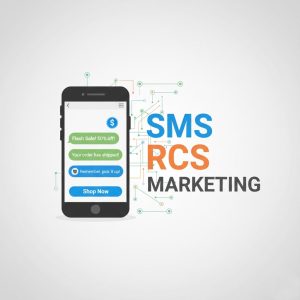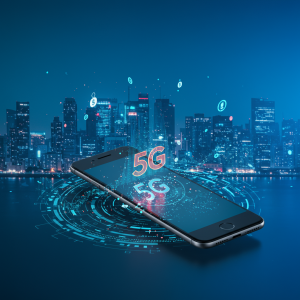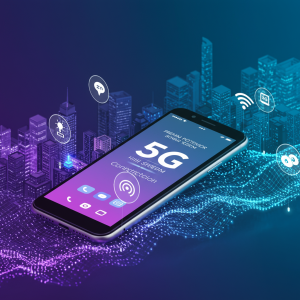The Top Benefits of Mobile Marketing

If you’re wondering whether to invest in mobile marketing, consider this: the average person checks their phone about 96 times a day. That’s once every 10 minutes. This constant connection presents a massive opportunity for businesses to reach their audience exactly where they are—on their mobile devices.
Mobile marketing is no longer just an option; it’s a fundamental part of any successful marketing strategy. It allows you to connect with customers in a way that is immediate, personal, and highly effective. This post will explore the key benefits of mobile marketing and explain why your business needs to adopt a mobile-first approach to stay competitive and drive growth. By the end, you’ll have a clear understanding of how to leverage mobile channels to build stronger customer relationships and achieve your business goals.
What is Mobile Marketing?

Before we explore its benefits, let’s define what mobile marketing is. Mobile marketing is a multi-channel digital marketing strategy aimed at reaching a target audience on their smartphones, tablets, and other mobile devices. This can happen through various channels, including SMS text messages, social media, websites, email, and mobile applications.
The goal is to promote products and services in a way that is optimized for the mobile experience. Since people carry their phones everywhere, mobile marketing provides a direct and personal line of communication with potential customers, making it a powerful tool for engagement and conversion. Learn more about Mobile Marketing Automation.
Reach Customers Instantly
One of the most significant advantages of mobile marketing is its immediacy. Unlike traditional marketing channels that can have a time lag, mobile messages can be delivered and seen almost instantly.
Push Notifications and SMS
Push notifications and SMS messages are perfect examples of this. When you send a text message or a notification from your app, it appears directly on the user’s screen. The open rates for SMS messages are incredibly high—around 98%—with most being read within minutes of receipt. This makes it an ideal channel for time-sensitive promotions, such as flash sales, event reminders, or urgent updates. By leveraging this immediacy, you can drive quick action and keep your brand top-of-mind.
Real-Time Engagement
Mobile devices also allow for real-time engagement. For example, a restaurant can send a push notification about a lunch special just before noon, targeting people in the immediate vicinity. This ability to deliver the right message at the right time is a core strength of mobile marketing. It creates a sense of urgency and relevance that other channels struggle to match, leading to higher conversion rates and stronger customer engagement.
Cost-Effective Strategy
Compared to traditional advertising methods like television, radio, or print, mobile marketing is remarkably cost-effective. It offers a higher return on investment (ROI) by allowing businesses to reach a large, targeted audience with a relatively small budget.
Lower Campaign Costs
Creating and running a mobile marketing campaign can be much cheaper than traditional campaigns. For instance, sending an email or an SMS message costs significantly less than printing and distributing flyers or buying ad space in a magazine. Social media advertising on mobile platforms also allows for precise budget control, letting you set daily or campaign-wide spending limits. This accessibility makes mobile marketing a viable option for small businesses and startups that may not have large marketing budgets.
Higher ROI
The targeted nature of mobile marketing contributes to its high ROI. By reaching people who are more likely to be interested in your products or services, you reduce wasted ad spend and increase the efficiency of your campaigns. Tools for tracking and analytics provide clear insights into campaign performance, allowing you to optimize your strategy in real-time to maximize results. This data-driven approach ensures that every dollar spent is working as hard as possible to achieve your marketing objectives.
Highly Targeted and Personalized
Mobile marketing allows for an unparalleled level of targeting and personalization. Because mobile devices are so personal, they provide a wealth of data that can be used to tailor messages to individual users.
Geolocation Targeting
Geolocation is a powerful tool in the mobile marketer’s arsenal. It allows you to target users based on their physical location. A retail store, for example, can send special offers to customers who are near their location, encouraging them to visit. This location-based targeting, or “geofencing,” makes your marketing efforts more relevant and timely, increasing the likelihood of conversion.
Demographic and Behavioral Data
Beyond location, mobile marketing allows you to target based on demographics, interests, and past behavior. If a user has previously purchased a certain product or visited specific pages on your website, you can use this information to send them personalized recommendations or offers. This level of personalization makes customers feel understood and valued, which builds loyalty and drives repeat business. Platforms like Facebook and Google offer sophisticated targeting options that let you create highly specific audience segments, ensuring your message resonates with the right people.
Increased Customer Engagement
Mobile marketing fosters a more interactive and engaging relationship with customers. The features available on mobile devices create numerous opportunities for brands to connect with their audience in a meaningful way.
Interactive Content
Mobile marketing isn’t limited to static ads. You can use interactive content like polls, quizzes, and contests to engage your audience. Mobile apps can incorporate gamification elements to encourage repeated use and build brand loyalty. Social media platforms, which are predominantly accessed on mobile, are perfect for running interactive campaigns that encourage user-generated content and foster a sense of community.
Direct Communication Channels
Mobile provides direct lines of communication with your customers. Features like click-to-call buttons in ads or direct messaging on social media make it easy for customers to get in touch with your business. This accessibility helps build trust and provides a better customer experience. When customers know they can easily reach you, they are more likely to feel confident in their purchasing decisions.
Drives Conversions and Sales

Ultimately, the goal of any marketing effort is to drive sales, and mobile marketing excels in this area. The convenience of mobile devices makes it easier than ever for customers to make a purchase.
Simplified Purchase Journey
Mobile wallets like Apple Pay and Google Pay have simplified the checkout process, reducing friction and cart abandonment rates. With just a few taps, customers can complete a purchase without having to manually enter their payment and shipping information. This streamlined experience is crucial for converting mobile shoppers.
Integration with E-commerce
For e-commerce businesses, a mobile-optimized website or a dedicated shopping app is essential. A seamless mobile shopping experience encourages browsing and buying. Features like push notifications for abandoned carts or personalized product recommendations can further boost conversion rates. By making it easy for customers to shop on the go, you can capture sales that might otherwise be lost.
Ready to Go Mobile?
The evidence is clear: mobile marketing is a powerful and essential strategy for any business looking to thrive. From instant communication and cost-effective campaigns to deep personalization and increased sales, the benefits are too significant to ignore. By embracing a mobile-first approach, you can connect with your customers in a more meaningful way and build a stronger, more profitable brand.
Start by optimizing your website for mobile, consider developing an app if it fits your business model, and begin experimenting with mobile advertising channels like SMS and social media. The world is mobile, and it’s time for your marketing to be too.
Frequently Asked Questions
What are the main types of mobile marketing?
The main types of mobile marketing include SMS marketing, social media marketing on mobile platforms, in-app marketing, mobile search ads, and email marketing optimized for mobile devices. Each channel offers unique ways to reach and engage your target audience.
How do I get started with mobile marketing?
A good starting point is to ensure your website is mobile-friendly. From there, you can explore creating a presence on social media platforms your target audience uses. You can also start building an email list and sending mobile-optimized newsletters. For more advanced strategies, consider developing a mobile app or running targeted SMS campaigns.
How do I measure the success of my mobile marketing campaigns?
Success can be measured using various key performance indicators (KPIs). These include conversion rates, click-through rates (CTR), customer acquisition cost (CAC), customer lifetime value (CLV), and engagement metrics like likes, shares, and comments. Using analytics tools will help you track these metrics and understand your campaign’s performance.
Is mobile marketing suitable for B2B companies?
Absolutely. While the tactics might differ, mobile marketing is highly effective for B2B companies. Professionals use their mobile devices for work-related tasks, including checking emails, browsing LinkedIn, and researching products and services. B2B mobile marketing can involve targeted ads on professional networks, mobile-optimized landing pages for lead generation, and content marketing distributed through mobile channels.





